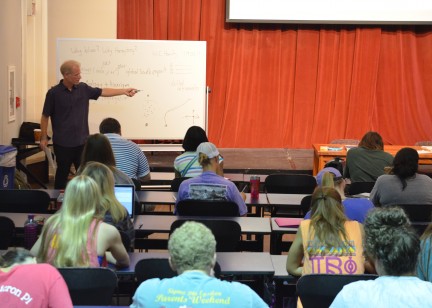Mission
MISSION STATEMENT
The mission of the Center for the Study of Southern Culture is to document, interpret, and teach about the U.S. South through critical research and public engagement.
Approaches and perspectives from various academic disciplines ground our understanding of the region, revealing the South’s cultural, historical, geographic, and demographic complexity.
At the heart of the Center’s mission is the academic program. Its undergraduate and graduate curricula strengthen the University’s commitment to the arts, humanities, and social sciences. This interdisciplinary approach engages different pathways to knowledge and recognizes creative perspectives on the study of the region.
Center faculty, staff, and students emphasize the following areas of study: literature, history, anthropology, sociology, religion, documentary storytelling (including film, photography, and oral history), foodways, music, race and ethnicity, globalization, environment, gender and sexuality, movement and migration, and place-making.
The Center engages broader audiences through publications, conferences, lectures, and documentary media. Because of its location, the Center focuses much of its work on Mississippi and the Deep South, while at the same time exploring the region as a whole, both in its U.S. and global contexts.
WHAT WE VALUE
People enliven our mission. Thus, we foster belonging through explicit and intentional commitments to inclusion, equity, and diversity.
By committing to inclusion, we invite people of all races, classes, genders, sexual orientations, religious affiliations, ages, ethnicities, physical and neural abilities, national and regional origins, and other aspects of identity to fully engage with the Center, its programming, its academic components, and its institutes.
By focusing on equity, we commit to fair treatment, access, and opportunity for all. No individual should be disadvantaged because of their identity. We commit to challenging institutional and societal barriers to fair treatment.
We believe that diversity results from active commitments to inclusion and equity. By continuing to commit ourselves to the processes of fostering inclusion and emphasizing equity, we imagine and realize a diverse Center for the Study of Southern Culture that is representative of the region we study.

